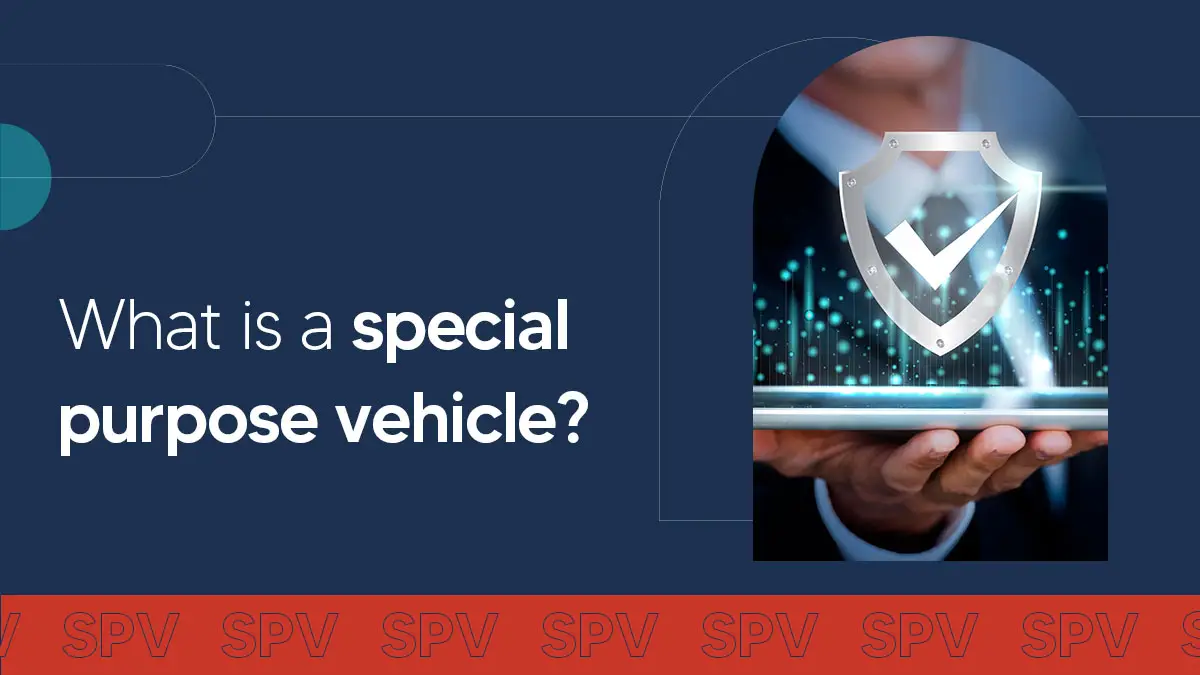Things can get complex with all the risks, rewards, and financial jargon when investing. Ever heard of “SPV” or Special Purpose Vehicle? It’s a term you might stumble upon if you’re interested in investing or starting your own business. Shuraa Business Setup will break down SPVs in simple terms in this blog post. We’ll talk about what they are, why they matter, and what they mean for your investment journey. Plus, we’ll dive into their history and legal side, mainly focusing on how they impact business in the United Arab Emirates (UAE). So, grab a seat and make sense of SPVs together!
What is a Special Purpose Vehicle (SPV)?
A Special Purpose Vehicle, also known as a Special Purpose Entity (SPE), is a subsidiary established by a parent company to shield itself from financial risks. By having its own legal identity, an SPV ensures that its obligations remain secure, even if the parent company faces bankruptcy. Due to this feature, an SPV is often called a “bankruptcy-remote entity.”
The Evolution of SPVs
Special Purpose Vehicles (SPVs) boast a rich history, witnessing a surge in their utilisation over recent decades. They’ve been employed for various purposes, including:
- Securitising assets
- Raising capital
- Mitigating risks
- Undertaking venturesome projects
- Facilitating joint ventures
- Accessing tax advantages
A notable case study is the Enron scandal, where the company leveraged SPVs to conceal debt and unfavourable transactions from its financial statements. However, your current learning about SPVs suggests that such misuse could have been more successful. Enron inevitably faced bankruptcy. This misuse underscored the imperative for enhanced transparency and stringent regulations governing SPV usage.
Applications of Special Purpose Vehicles
Special Purpose Vehicles (SPVs) serve various purposes, with the most common ones including:
Risk Mitigation
Corporations often undertake projects laden with significant risks. By establishing an SPV, a corporation can legally segregate the risks associated with a particular project and distribute them among different investors.
Securitisation
A prevalent use of SPVs lies in securitising loans. For instance, when issuing mortgage-backed securities derived from a pool of mortgages, a bank can create an SPV to separate these loans from its other liabilities. This arrangement enables investors in mortgage-backed securities to receive loan payments ahead of other bank creditors.
Asset Management
Certain assets pose challenges in terms of transferability. Hence, companies may opt to create SPVs to hold these assets. When the need arises to transfer these assets, the company can simply sell the SPV as part of a merger and acquisition (M&A) process.
Tax Optimization
In cases where property sale taxes exceed the capital gains realised from the sale, companies may establish an SPV to own the properties earmarked for sale. Consequently, the company can sell the SPV itself instead of directly selling the properties and incurring substantial tax liabilities. This approach allows for taxation on the capital gains from the SPV sale rather than facing higher property sale taxes.
Why Create An SPV
An SPV primarily aims to isolate corporate assets from financial risk further. By creating a separate legal entity, a parent company is granted more freedom to undertake risky ventures while enjoying fewer chances of negative economic impact on itself and its investors. Using an SPV in sectors like real estate shields assets from potential liabilities, proving especially valuable.
SPVs can also be used to securitise assets. For example, when issuing securities from a pool of mortgages, a bank can create an SPV to separate debt obligations for the loans from its other commitments. This allows investors in mortgage-backed securities to receive payments for these loans before other bank creditors.
SPVs offer favourable borrowing rates, risk isolation, and tax benefits. They enable companies to raise capital at better rates, manage risks, and optimise tax strategies, such as selling SPVs instead of assets to minimise tax obligations.
In the UAE, SPVs serve diverse functions like asset securitisation, joint ventures, and property investments. They offer a legal framework for businesses to pursue activities with reduced risk and improved tax efficiency.
Advantages and Drawbacks of Special Purpose Vehicles
Advantages:
Risk Isolation
SPVs provide a mechanism to isolate financial risks associated with specific ventures or assets, shielding the parent company from potential losses.
Asset Ownership
SPVs offer direct ownership of particular assets, providing clarity and control over asset management strategies.
Tax Efficiency
Creating SPVs in tax havens such as the Cayman Islands can lead to tax savings, enhancing overall financial efficiency.
Ease of Establishment
SPVs are relatively straightforward to create and set up, facilitating swift implementation of financial structures.
Drawbacks:
Limited Capital Access
SPVs may need help accessing capital independently, as they often need more creditworthiness than their sponsoring entities.
Accounting Implications
Selling assets held by SPVs could trigger Mark to Market accounting rules, potentially significantly impacting the sponsor’s balance sheet.
Regulatory Risks
Regulatory changes may pose severe challenges for companies utilising SPVs, necessitating ongoing monitoring and adaptability to comply with evolving regulations.
Negative Perceptions
SPVs sometimes carry negative connotations, leading to concerns about transparency and corporate governance practices.
Financial Structure of an SPV
The financials of a Special Purpose Vehicle (SPV) typically do not feature on the parent company’s balance sheet as either equity or debt. Instead, the SPV’s assets, liabilities, and equity are exclusively documented on its balance sheet.
Consequently, the SPV has the potential to obscure vital information from investors, depriving them of a comprehensive understanding of the parent company’s financial standing. As such, investors must conduct thorough analyses of both the parent company’s and the SPV’s balance sheets before making investment decisions regarding a business.
Enron’s Utilization of SPVs
The notorious financial collapse of Enron Corp. in 2001, once heralded as a thriving energy giant headquartered in Houston, serves as a glaring illustration of the misuse of Special Purpose Vehicles (SPVs).
Enron experienced soaring stock prices during its ascent, prompting the company to transfer a significant portion of its stock holdings to an SPV in exchange for cash or promissory notes. Subsequently, the SPV utilised these stocks to hedge assets listed on Enron’s balance sheet.
In a bid to mitigate risk, Enron extended guarantees to bolster the value of the SPV. However, these guarantees were swiftly invoked when Enron’s stock prices plummeted, triggering a corresponding decline in the SPV’s asset values.
While Enron’s misuse of SPVs was merely one facet of its elaborate accounting manoeuvres, it proved to be a pivotal factor in its precipitous downfall. Enron was unable to fulfil its substantial financial obligations to creditors and investors, so it faced rapid economic collapse.
As the crisis unfolded, Enron belatedly disclosed its financial disclosures, including those about the company and the SPVs. Despite the evident conflicts of interest, many investors needed to delve deeper into the financial intricacies to comprehend the severity of the situation.
Special Purpose Vehicles (SPVs): Their Uses and Applications
A Special Purpose Vehicle (SPV) is a subsidiary entity created for a precise business objective or endeavour. These entities find extensive application in structured finance arrangements, including asset securitisation, joint ventures, property transactions, and the segregation of parent company assets, operations, or risks. While SPVs serve numerous legitimate purposes, they have also been implicated in various financial and accounting scandals.
Related Link: Special Purpose Vehicle (SPV) Company Set Up In ADGM
In Summary
An SPV company setup is a subsidiary established by a parent company for various purposes, including isolating financial risk, asset securitisation, and conducting separate financial transactions. However, SPVs have manipulated company financials to misrepresent financial health. Therefore, it’s crucial to thoroughly evaluate SPVs in conjunction with other elements of a company’s financial statements before making investment decisions.
Shuraa Business Setup is here to help you establish your business. For prompt assistance, contact us at +97144081900 or send a WhatsApp message to +971507775554. Alternatively, you can email us at [email protected].
Frequently Asked Questions
Q1. Do SPV Assets and Liabilities Reflect on the Parent Company’s Balance Sheet?
No, SPVs maintain separate assets, liabilities, and obligations distinct from the parent company. They can issue bonds independently to secure additional capital at favourable rates, offering off-balance sheet treatment for tax and financial reporting benefits.
Q2. How Do SPVs Operate?
SPVs function as affiliates of parent corporations, acquiring assets off the parent’s balance sheet. Acting as indirect financing sources, SPVs attract equity investors to purchase debt obligations, which is particularly beneficial for managing large credit risks like subprime mortgage loans. SPV structures vary, and limited liability corporation (LLC) forms are commonly adopted in the United States.
Q3. Why Form an SPV?
Companies establish SPVs for asset and liability protection, insulating against bankruptcy and insolvency risks. SPVs offer streamlined capital-raising avenues and operational flexibility, unencumbered by the regulatory constraints of parent companies.
Q4. What role do SPVs play in Public-Private Partnerships (PPPs)?
Private companies often insist on SPVs in public-private partnerships, especially for capital-intensive projects like infrastructure development. SPVs mitigate financial exposure for private entities, allowing them to share risks effectively with governmental agencies.








